Can – and should – immigrants participate in Swiss politics?
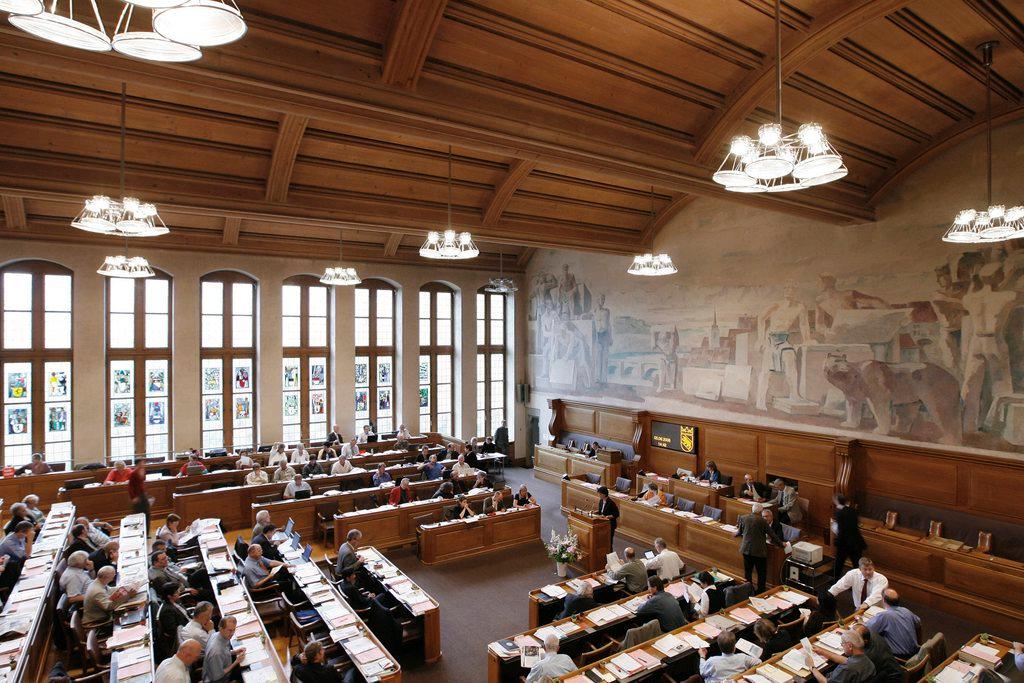
The number of foreign residents in Switzerland has increased to almost one quarter of the population. Most of them don’t have a say in the laws that govern them. But how much does it matter?
Standing at the podium in Bern’s town hall, the seat of the local parliament, Cristina Anliker-Mansour looks small. Her voice is quiet. But the woman who moved to the Swiss capital from Peru at the age of 21 has a big goal: allowing non-Swiss a say in the government of the city of Bern.
“They pay taxes, they contribute to improving the economy in their country and their community,” says Anliker-Mansour. Yet many people – some of whom were born in Switzerland – don’t have political rights because they’re not citizens. “They’re excluded from political participation, which is actually an element of integration,” she says.
Some communities in Switzerland – primarily in French-speaking cantons – allow non-Swiss residents to vote on local or cantonal issues, or to run for office, but these are in the minority.
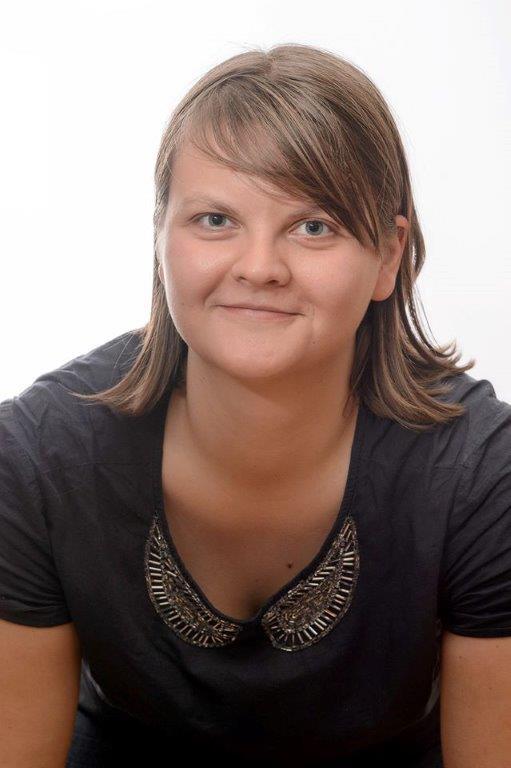
A city councilwoman in Geneva
At 23, Russian-born Olga Baranova serves as the youngest member of the Geneva city parliament.
“I became a Swiss citizen just one week before we had to give in the lists for the city council in Geneva,” she says. “Until the last moment I didn’t know whether I would be able to be a candidate or not.”
Baranova is originally from Russia, but grew up in Germany, then moved to Switzerland. “For me it was clear that when I had the possibility to become Swiss I would straightaway go and get the passport,” she says. “I was already in the Socialist Youth [party], and so for example I was getting signatures for referendums and initiatives but I didn’t have the possibility to vote myself, and that was extremely frustrating.”
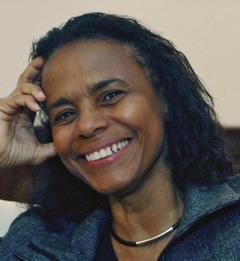
A volunteer in Zurich
Carmel Fröhlicher-Stines, who came to Switzerland from Haiti in 1971 and became a citizen when she married in 1978, has spent most of her life fighting for social causes and volunteering for social organisations. These range from Swissaid to the Women’s Information Centre FIZ to two national commissions, one against racism and another for migration.
The 30 members of the migration commission – around half of whom were not born in Switzerland – conduct research, publish position papers, and advise the government on related issues. This is one way that foreigners have a say in Swiss politics.
But Fröhlicher sees voting as essential. “If you have no vote, you have no say,” she says. “If foreigners are given the right to vote, even if it’s on a local level, all of a sudden they’re worth something to the politicians. Their voice is heard.”
A voice in Bern politics
The participation motion introduced by Cristina Anliker-Mansour would allow the 33,000 non-Swiss residents of the Swiss capital to submit motions to the Bern city parliament if they collect at least 200 signatures from foreigners residing in Bern. Only adult immigrants with a C (unrestricted), B (temporary), or F (provisionally accepted) residence permit who have lived in the city for three months would be eligible to submit or give signatures for motions. The subject of the motion must be under the jurisdiction of the city parliament. On May 21 Bern’s youth assembly voted 60 to 3 in favour of recommending that the city’s voters pass the motion. Bern residents vote on the proposal on June 14.
Divided opinion
The participation motion introduced by Anliker-Mansour, a member of the leftwing Green Party in Bern, would not give foreigners the right to vote. But it would allow non-Swiss to bring an idea to the Bern city parliament, provided they collect 200 signatures from other non-Swiss living in Bern.
“The question is, How do you involve people so that you promote cohesion, identity and a sense of belonging?” says Anliker-Mansour.
For Erich Hess, a member of the Bern city parliament representing the conservative right Swiss People’s Party, this is not a goal. “In my opinion, foreigners are guests in Switzerland and they shouldn’t be getting involved in the political process. If they’re really interested, they should become citizens so that they can participate.”
Waxing and waning interest
The right to vote is seen by some as a way to achieve integration and by others as a reward for integration. “Whether the possibility to vote should come at the beginning of the process or at the end – that’s the debate,” says Andreas Ladner of the Swiss Graduate School of Public Administration at the University of Lausanne.
Ladner studied the political preferences of 1,000 non-Swiss in Switzerland. He found that foreigners with a “C” settlement permit were less interested in politics than foreigners with a “B” temporary residence permit, and both groups were less interested in politics than Swiss citizens.
Ladner came to the conclusion that interest in politics wanes the longer a person is unable to participate in the political process.
But could it be that the people who are interested in politics decide to become citizens?
Second generation or new immigrants?
In 2013, 2.4 million of the 6.8 million people aged 15 or more living in Switzerland had a migration background. Four-fifths of them were born abroad; the remaining fifth were born in Switzerland but to parents who were born abroad.
Becoming Swiss
Although no national statistics are collected on the subject, one of the questions that people who apply for Swiss citizenship are asked is why they want to be citizens. Each canton and municipality has its own process for evaluating candidates for citizenship. In Fribourg, Irmgard Vuichard of the cantonal Office for Civil Status and Naturalisation is one of three people who coordinate the evaluation of some 1,000 applications received by the department each year.
Every candidate for regular naturalisation in Fribourg submits a motivational letter, says Vuichard. “That might be anything from two sentences to two pages – we see everything.” Among the reasons people give is wanting to be able to vote on the national level. “It’s hard to name a percentage. I’d estimate that around 15% to 20% will mention the political aspect.”
Vuichard says some people have waited a long time to apply for citizenship. “We have a lot of Italians, Spaniards, Portuguese who came here years ago and are now retired and would like to be able to have a say on issues that affect them,” she says.
Leaning left
In his study, Ladner found that if they could vote, non-Swiss would tend to elect leftwing parties, and in particular the Social Democrats (28.5%) or the Green Party (17.8%).
Leftwing parties are traditionally considered more “foreigner friendly”. Social Democrat Olga Baranova of Geneva says she makes an effort to address issues that are important for foreigners. “Of course I identify myself with all the people who come here to live who face major problems that you have in Switzerland when you’re a foreigner, when you have to learn the language, when you have to learn the culture,” she says.
The options
How can politically minded foreigners be active in Switzerland? They can write letters to the editor, says Ladner. In some places they can launch petitions. They can belong to social organisations. And they can submit ideas to members of parliament. “There are possibilities, but they are considerably lower than being able to vote and to elect.”
The political party system is open to foreigners, argues Baranova, even if there are sometimes barriers. “You just have to join the party that interests you, and you have to try to socialise with people, because politics, it’s always about socialisation with people who are into politics.”
Integrating foreigners in the political system requires effort on all sides, says Baranova. “As somebody who was not born in Switzerland you have to do the effort, you have to go towards those people. But also the political parties have to do something to promote themselves, to promote their programmes, for example in the expat community.”
Voting, electing and serving
Only five of 26 cantons give foreigners the opportunity to participate in politics by voting on initiatives, electing officials or holding an office. In all cases they are required to have lived in Switzerland and/or the canton for a certain number of years.
Non-Swiss in Fribourg and Vaud have no rights at the cantonal level. At the community level they can vote, elect and hold office. Non-Swiss in Geneva have no rights at the cantonal level. At the community level they can vote and elect but not hold an office. Non-Swiss who have lived in Jura and Neuchâtel can vote and elect at the cantonal level but not hold an office. At the community level they can vote and elect and hold certain offices.
In three cantons in German-speaking Switzerland – Appenzell Outer Rhodes, Graubünden and parts of Basel City – communities have the option of allowing non-Swiss to participate politically, but none of the communities have taken advantage of the option.
(Source: Federal Commission on Migration)

In compliance with the JTI standards
More: SWI swissinfo.ch certified by the Journalism Trust Initiative









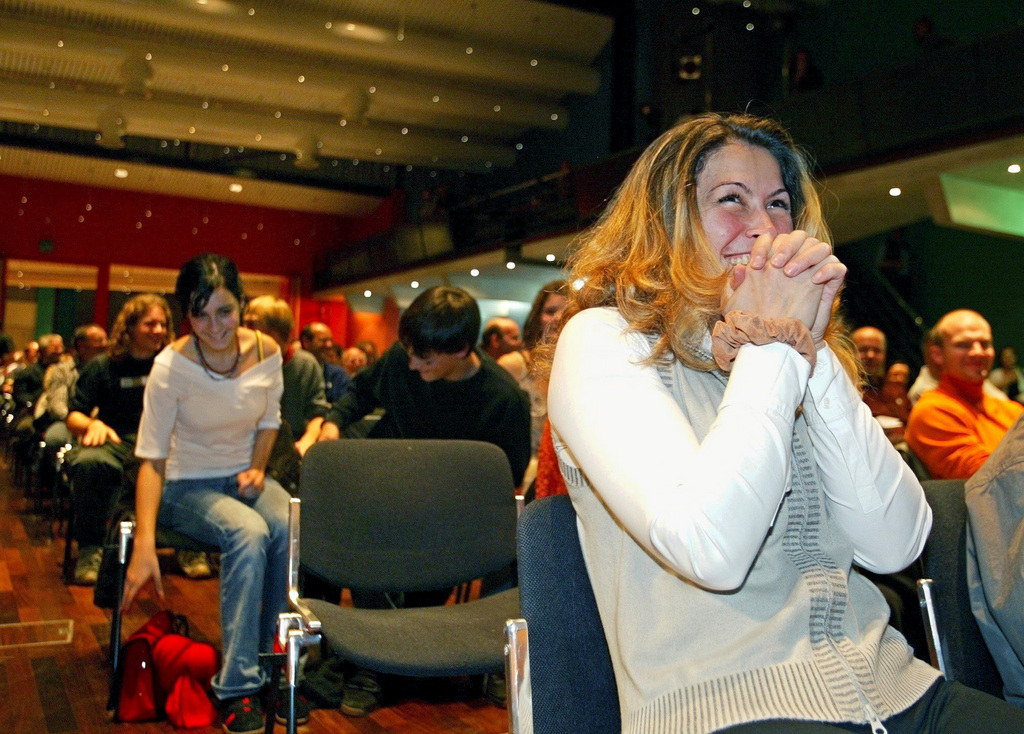


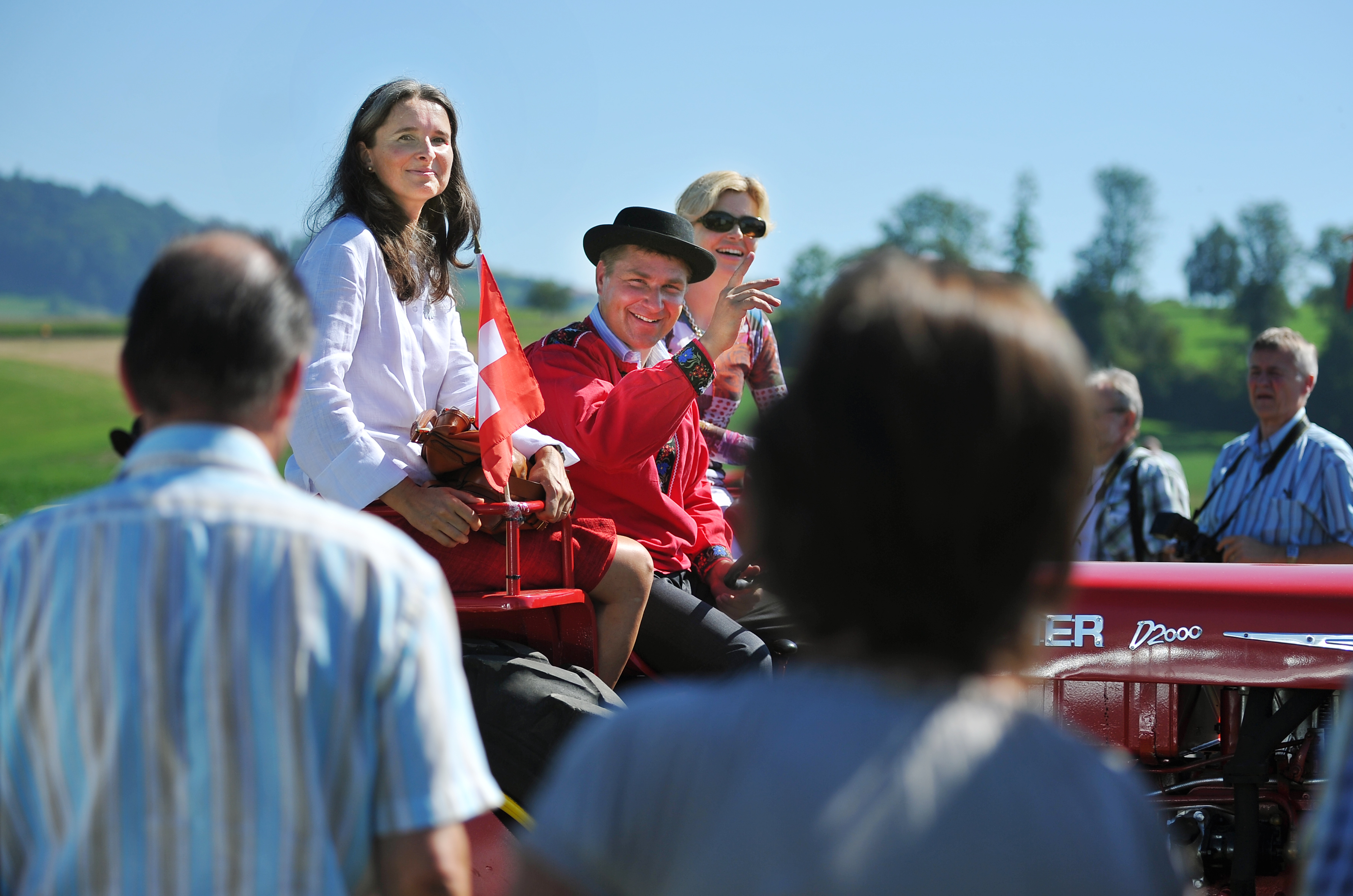

You can find an overview of ongoing debates with our journalists here . Please join us!
If you want to start a conversation about a topic raised in this article or want to report factual errors, email us at english@swissinfo.ch.